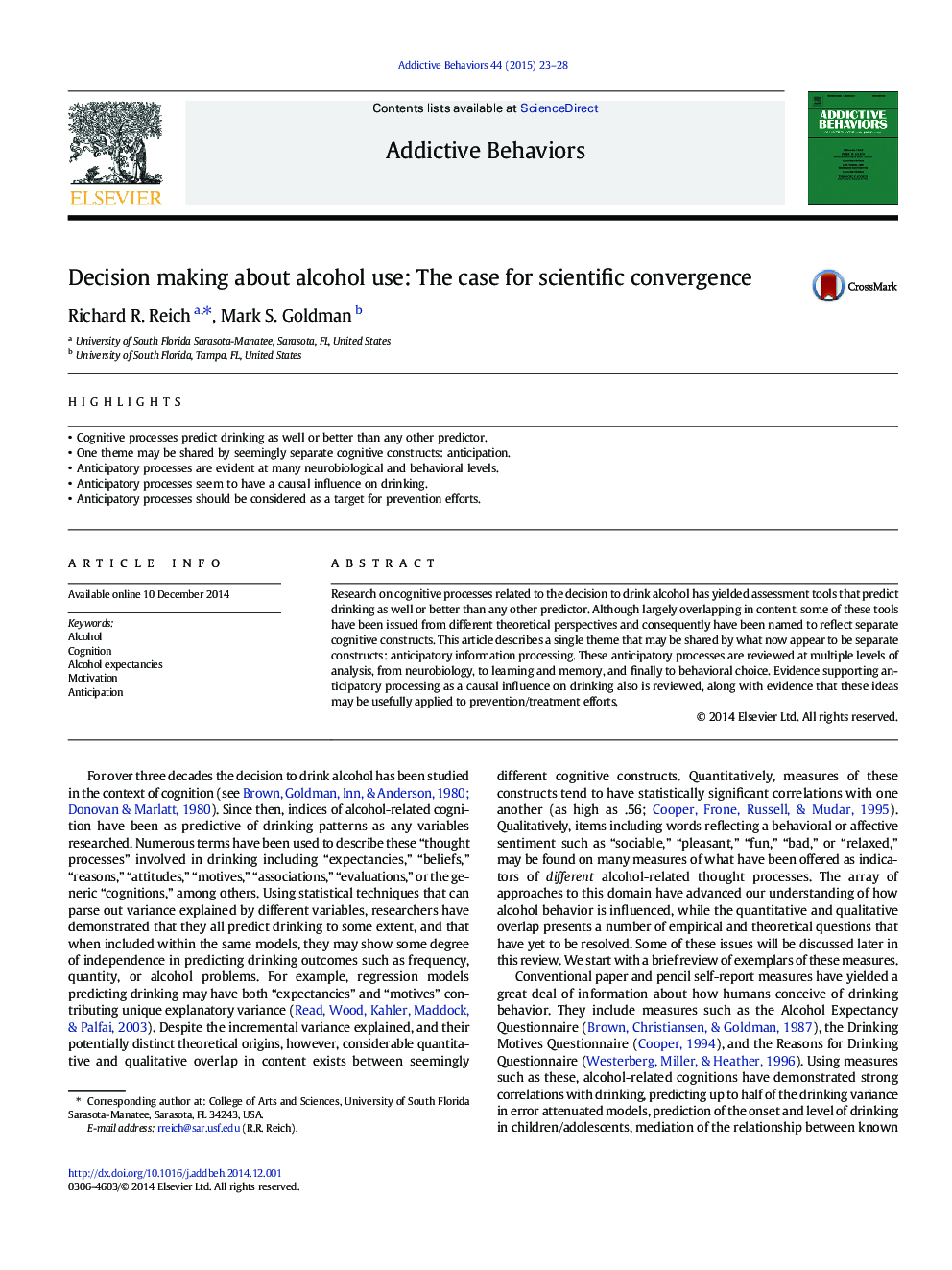| Article ID | Journal | Published Year | Pages | File Type |
|---|---|---|---|---|
| 898700 | Addictive Behaviors | 2015 | 6 Pages |
•Cognitive processes predict drinking as well or better than any other predictor.•One theme may be shared by seemingly separate cognitive constructs: anticipation.•Anticipatory processes are evident at many neurobiological and behavioral levels.•Anticipatory processes seem to have a causal influence on drinking.•Anticipatory processes should be considered as a target for prevention efforts.
Research on cognitive processes related to the decision to drink alcohol has yielded assessment tools that predict drinking as well or better than any other predictor. Although largely overlapping in content, some of these tools have been issued from different theoretical perspectives and consequently have been named to reflect separate cognitive constructs. This article describes a single theme that may be shared by what now appear to be separate constructs: anticipatory information processing. These anticipatory processes are reviewed at multiple levels of analysis, from neurobiology, to learning and memory, and finally to behavioral choice. Evidence supporting anticipatory processing as a causal influence on drinking also is reviewed, along with evidence that these ideas may be usefully applied to prevention/treatment efforts.
